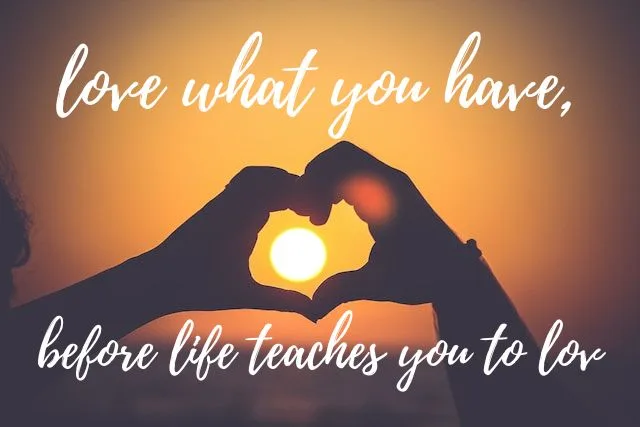The phrase “Love what you have, before life teaches you to love – Tymoff” carries a powerful life lesson. It reminds us to cherish the things we have before life forces us to appreciate them through difficult experiences. Let’s dive into the meaning and lessons behind this timeless quote.
Understanding the Message of Tymoff’s Words
The message behind Tymoff’s quote is quite simple yet profound. In our fast-paced lives, we often take things for granted. We are constantly chasing after more — a better job, a bigger house, or the latest gadget. However, in this pursuit, we overlook the blessings we already have. Tymoff’s words remind us to pause, reflect, and appreciate what’s already present in our lives. This mindset shift can make a huge difference in our overall happiness.
By focusing on the present and being grateful, we avoid the regret of losing something precious. Only when it’s gone do we often realize its true value. Tymoff’s message encourages us to change that perspective now before life’s harsh lessons force us to.
Why It’s Important to Appreciate What You Have
Gratitude is a cornerstone of a happy life. When we learn to appreciate what we already possess, we unlock a sense of inner peace. The constant desire for more can leave us feeling unfulfilled. But when we practice gratitude, we shift our focus to the positive aspects of our lives.
Appreciation can change our mindset from scarcity to abundance. Instead of focusing on what’s missing, we start to see how rich our lives are already. This simple shift can lead to a happier and more content life. Studies have shown that people who regularly practice gratitude experience better mental health, sleep quality, and overall well-being.
How Life Teaches Us Hard Lessons
Life has a way of teaching us lessons when we least expect it. Often, we don’t realize the value of something or someone until it’s too late. Whether it’s losing a loved one, facing financial hardship, or going through a health scare, life’s challenges have a way of forcing us to appreciate what we previously ignored.

These moments can be harsh but eye-opening. They remind us that nothing in life is permanent. The sooner we learn to value what we have, the less likely we are to live with regrets.
Real-Life Examples of Gratitude
Many people have shared stories of how life’s challenges made them more grateful. For instance, someone who lost their job might realize how much they appreciated the stability it brought. Or a person recovering from an illness may develop a newfound appreciation for good health. These experiences teach us to cherish the simple joys of life.
How Gratitude Changes Your Perspective
Gratitude shifts your focus. Instead of dwelling on what you lack, you begin to see all that you already have. This shift in perspective not only improves your mood but also strengthens your relationships. When you are thankful for the people in your life, you show them love and appreciation, fostering stronger bonds.
Tips for Practicing Gratitude Daily
- Start a gratitude journal: Write down three things you’re grateful for each day.
- Express your appreciation: Tell someone why you’re thankful for them.
- Practice mindfulness: Take a few moments each day to reflect on what you have.
Simple Ways to Start Loving What You Have
Loving what you have doesn’t require grand gestures. It’s about shifting your mindset and finding joy in the little things. Here are some simple ways to begin:
- Take a moment each day to appreciate your surroundings. Whether it’s enjoying a cup of coffee or listening to birds chirping outside, these small moments can bring immense joy.
- Be mindful of your blessings. Whenever you feel frustrated, pause and think of three things you’re grateful for.
- Limit comparisons. Social media can make it easy to compare your life to others but remember that everyone has their struggles.
Finding Happiness in the Present Moment
We often get caught up in worrying about the future or regretting the past. But true happiness is found in the present. When we focus on the now, we start to notice all the beautiful moments we would have otherwise missed.
Practising mindfulness helps us to be fully engaged in the current moment. It can be as simple as enjoying a meal without distractions or taking a walk and truly noticing your surroundings. By focusing on what’s in front of us, we learn to appreciate life’s simple pleasures.
Embracing the Journey of Self-Love
Learning to love yourself is one of the most important journeys you can embark on. It’s about accepting yourself with all your flaws and recognizing your worth. Self-love is not selfish; it’s necessary for your well-being. Once you start loving yourself, you’ll find it easier to appreciate the world around you.

Small Acts of Self-Care That Make a Big Difference
- Take breaks when you need them.
- Treat yourself to something you enjoy, whether it’s a good book or a relaxing bath.
- Set healthy boundaries with people who drain your energy.
Building a Positive Mindset
- Surround yourself with positive influences.
- Engage in activities that uplift your spirits.
- Challenge negative thoughts by replacing them with positive affirmations.
Letting Go of Negative Thoughts
Holding onto negative thoughts only brings stress. Practice letting go by focusing on what you can control and accepting what you cannot.
The Power of a Grateful Heart
A heart full of gratitude is a magnet for joy. When you are thankful, it’s easier to find happiness in the simplest of things. You become more compassionate, more forgiving, and more open to life’s possibilities. Gratitude changes how you see the world, making every day a bit brighter.
The Bottom Line
At the end of the day, Tymoff’s message is a reminder to cherish the present. Don’t wait for life to teach you hard lessons before you start appreciating what you have. By practising gratitude, embracing self-love, and living in the moment, you can lead a happier, more fulfilled life.



